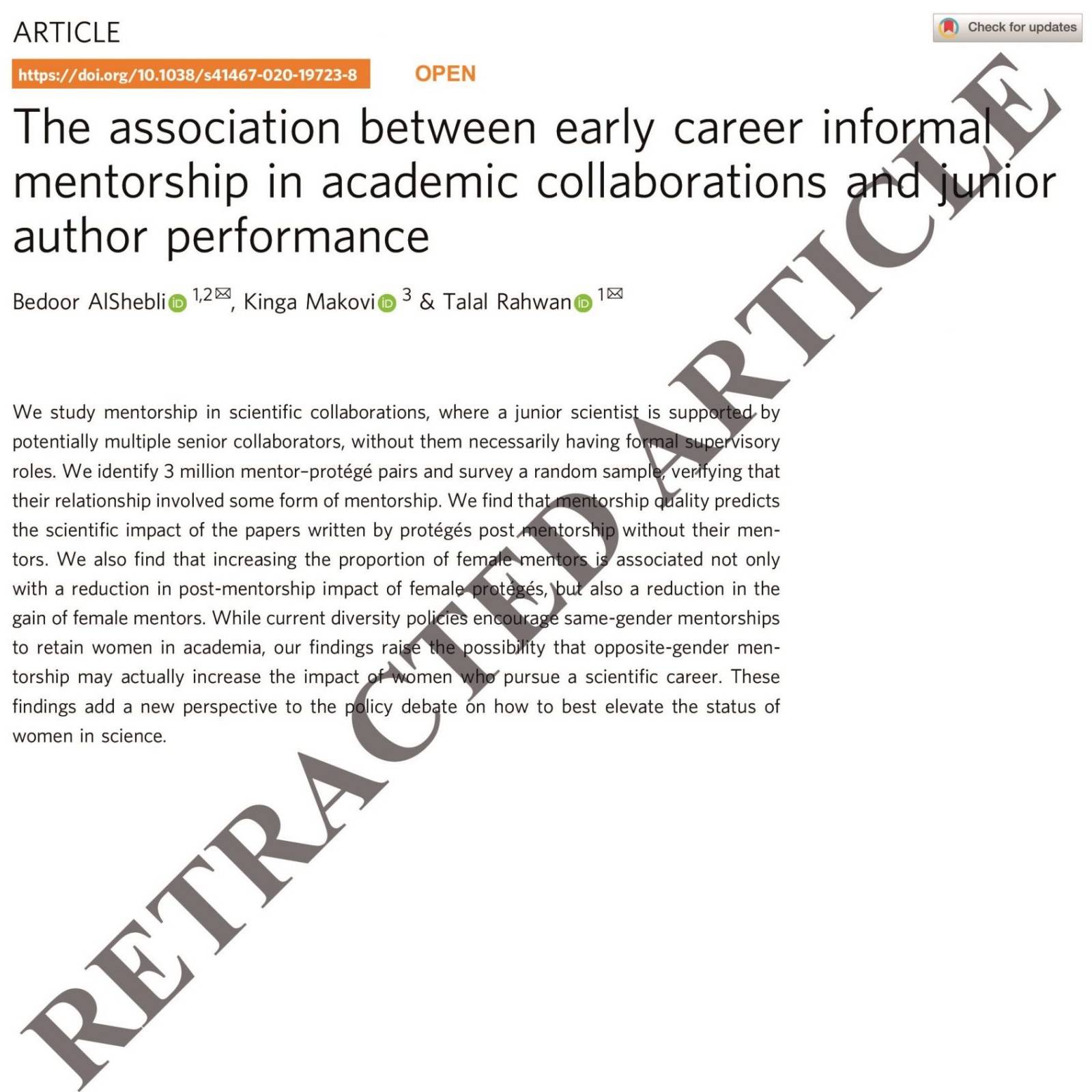Gender justice
Doing a disservice to women scientists
A study on the impact of male and female mentorships has caused a big stir. But critics of it have been criticised in turn.

The conclusions made in a paper on the influence of mentors on mentees were criticised so much that the authors ultimately retracted it. | Illustration: Screenshot
A study published in Nature Communications on 17 November 2020 caused an outcry in the science community. Researchers led by the computer scientist Bedoor AlShebli of New York University in Abu Dhabi had combed through more than 200 million scientific papers in order to identify mentor-mentee pairings. They investigated citation datasets and found that female researchers were cited more often if they were mentored by men, not women. This article was criticised, both because of its methods – co-authorship was regarded for the purposes of the study as being synonymous with mentorship – and because of its conclusions, which were felt could encourage women to seek out male mentors. The researchers ultimately withdrew their paper.
Tania Reynolds is a social psychologist at the University of New Mexico. Her Twitter account states that she stands for ‘Data over ideology’, and she sees this case in a different light. In the Australian online magazine Quilette, she pointed out that papers are generally withdrawn for one of two reasons: because data has been falsified, or because coding mistakes have been made. In both cases, the results are made invalid. But neither applies here. What’s more, the results published by AlShebli are consistent with other literature about citation patterns: “If you are upset by AlShebli’s findings, channel your efforts towards understanding these patterns better”, she wrote. “Do not bury them”.
Although AlShebli’s work was only correlative and observational, she nevertheless analysed over 200 million of acts of scholarly collaboration. “If the effects documented are real, let us examine why”, says Reynolds. “We would be doing female scientists a disservice by sticking our heads in the sand and pretending these patterns are not there”. If people want to promote female scientists, claims Reynolds, they should collect new data and carry out further analyses, or get to grips properly with the empirical literature.




